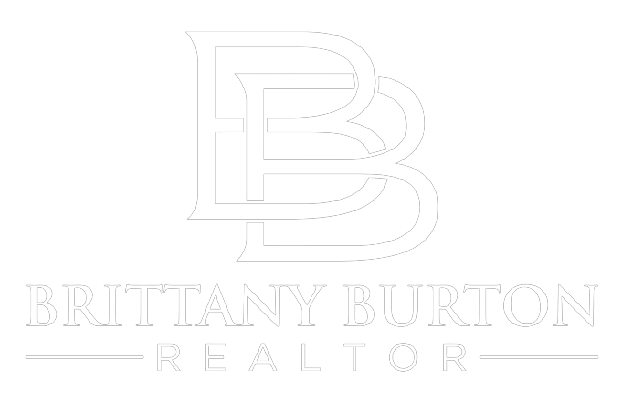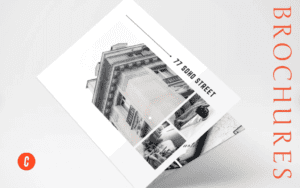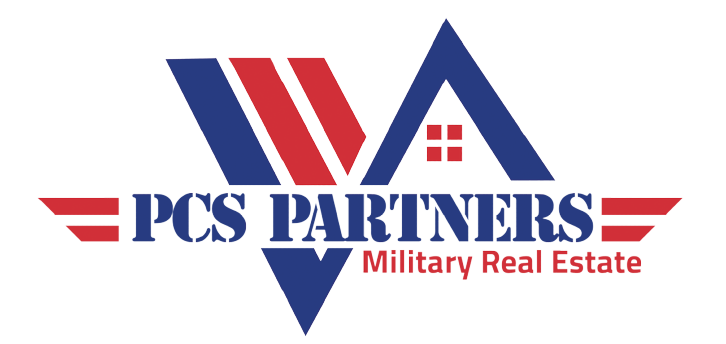No closing cost mortgages are mortgages where the home buyer does not pay any of his fixed closing costs. Instead, the mortgage lender pays the closing costs on behalf of the buyer.
No closing cost mortgages are sometimes called “zero-closing cost mortgages” or “no fee mortgages”—all of which are misnomers because there is no such thing as buying a home with no closing costs.
No closing cost mortgages are ideal for two types of home buyers:
- Buyer with limited funds to make down payment
- Buyers who like to save cash for furniture, home repairs and other uses
Zero-cost loans are also suitable for home buyers who earn a decent income but haven’t yet had the time to grow their savings.
This article discusses mortgage fees, how a no closing cost mortgage works, and when home buyers should consider a no-cost mortgage to help them afford their home.
How do no closing cost mortgages work?
The term “no closing cost mortgage” is a misnomer because there is a cost of buying a home and financing it with a mortgage.
Certain fees are assessed on each loan, such as government taxes and recording fees. Some fees are not always charged, including loan origination fees and mortgage discount points.
A better name for a no closing cost mortgage would be a “lender-paid closing cost mortgage” because the latter reflects how a no closing cost loan works.
A no closing cost loan is when the lender pays the buyer’s costs on their behalf.
In exchange for paying the buyer’s closing costs, mortgage lenders charge the buyer a higher mortgage interest to offset their initial cash outlay.
The trade-off between closing costs and interest rates fluctuates with market conditions.
At today’s mortgage rates, the no-cost mortgage option adds $35 per month to mortgage payments with a $200,000 mortgage.
Buyers can request a rebate of up to their total closing cost figure. Lenders will waive only the total fee charged.
Typically, lenders will trade one percent in closing costs for a 25 basis point (0.25 percentage point) increase in the mortgage rate.
How Much Are the Closing Costs for Buying a Home?
According to CoreLogic’s ClosingCorp, closing costs for buying a home average 1.01 percent of the home’s purchase price, or $1,001 per $100,000 purchased.
Closing costs include:
Home buyers also pay real estate taxes to state and local governments, adding up to an additional three percent to the fees.
We’ve listed the ten most common mortgage closing costs below. Your purchase may be subject to some or all of these fees, plus additional fees not shown below.
1. Origination Fee
Origination fees are the fees charged by a mortgage lender for originating, processing and approving your loan. Not all lenders charge origination fees, which are typically less than 1 percent of the mortgage loan amount.
2. Assessment Fee
An appraisal is an estimate of a home’s value made by a licensed professional. Appraisal fees range from $300 to $700 depending on the size and specification of your home. Some lenders use software to appraise homes which can reduce costs by 50% or more.
3. Credit Report Fee
Mortgage applications require a credit report for approval. Credit report fees range from $30 to $70.
4. Title Search and Title Insurance Fee
Title searches ensure that sellers have legal standing to sell their homes and that mortgages and homestead claims are satisfied. Title search fees are up to $300. Title insurance is an additional fee that insures against errors and can add up to $1,000 to the cost of a $200,000 home purchase.
5. Settlement or Escrow Fee
Settlement fee is the cost of preparing and processing the home purchase documents. Settlement fees are often less than $1,000.
6. Recording Fee
The recording fee is the cost of recording the purchase of a home with your local municipality. Recording fees vary depending on the purchase price and the county of record. The recording fee is $200 maximum.
7. Survey Fee
Surveys are detailed maps prepared by licensed professionals that describe precise property boundaries and structures on the premises. Survey fees are up to $1,000. Not all home purchases require a survey.
8. Home Inspection Fee
A home inspection is a mechanical, plumbing and fixed system check of a home performed by a licensed professional. Home inspection fees are often less than $500. Home inspections are optional and recommended.
9. Pest Inspection Fee
A pest inspection checks the home for termites and other pests, performed by a licensed professional. Pest inspection fees are up to $300. Pest inspection may be optional.
10. Flood Certification Fee
Flood certification is the process of obtaining and reviewing flood zone information for a home and determining whether flood insurance is needed. Flood certification fees are up to $50.
Note that closing costs are not a profit center for mortgage companies. Buyers pay the exact fee without any additional markup.
Benefits of No Closing Cost Mortgage
According to the Center for Responsible Lending, a first-time home buyer needs eight years to save up for the minimum down payment and closing costs, without receiving a cash gift for the down payment or using down payment assistance.
Eight years is too long a wait for many first-time buyers.
A no closing cost mortgage makes home ownership more affordable and attainable.
You can buy a home today instead of saving for many years
A Fannie Mae working paper shows that some home buyers end up paying more in closing costs than downpayments, doubling the time needed to save up for a home.
Through zero-closing cost mortgages, home buyers can buy a home today instead of waiting to achieve their American Dream.
You can leave more money in the bank
According to the National Association of Homebuilders, the typical new homeowner spends more than $21,000 on furniture, repairs and new appliances within their first 12 months. Life emergencies also happen.
Buyers who use mortgages with no closing costs are often more cash-ready than buyers who spend everything on down payments and fees.
You Can “Beat the Bank” and Save More Money
A zero-closing mortgage breaks even when any closing costs exceed the savings made by paying off the mortgage’s higher interest rate at closing. The break-even point for many no-cost loans is at 5 years.
Therefore, if you plan to move or refinance your mortgage within the first five years in the home, a zero-closing cost mortgage will often save you money.
You can max out your down payment
With a no closing cost mortgage, buyers have more free cash to use for the down payment. Larger down payments can open up access to lower mortgage rates with conventional loans and more favorable loan terms for jumbo and portfolio products. A larger down payment can also strengthen eligibility for buyers with higher debt-to-income ratios.
No closing cost mortgage option
No closing cost mortgages, seller concessions, first time home buyer grants and down payment assistance are three options to use.
vendor concessions
Seller rebates are a form of financial incentive that sellers offer to home buyers to make homes more affordable. The most common seller concession is when a seller pays some or all of the buyer’s closing costs out of their proceeds.
Costs that qualify for vendor rebates include:
- Origination Fee and Discount Points
- title fees and settlement costs
- state and local real estate taxes
Home buyers can receive up to 6 percent of the home’s purchase price in the form of seller concessions, or up to $6,000 per $100,000 in purchase price.
If you expect to use vendor concessions, follow these rules:
- Purchase sale contract should refer to seller concessions
- Seller’s concessions should be mentioned in the settlement details
- Value of seller concessions cannot exceed the total closing cost of the transaction
Seller concessions require mortgage lender approval. Inform your lender if you plan to use seller concessions with your upcoming purchase.
first time home buyer grant
First-Time Home Buyer Grants are financial assistance programs that give cash to first-time buyers to help make homes more affordable. For eligible buyers, the cash grant can be up to $50,000 and provides assistance with closing costs, down payments, home repairs and other home buying expenses.
Congress has three cash grant bills, including the Downpayment Toward Equity Act, which gives up to $25,000 in cash to first-time home buyers. The bill is yet to be passed into law.
See all of the first time home buyer grants.
local down payment assistance program
Local down payment assistance programs help eligible low- and moderate-income buyers with the upfront costs of first-time home purchases. Down payment assistance programs provide cash grants, forgivable loans and closing cost assistance to first-time home buyers.
The Department of Housing and Urban Development maintains a periodically updated list of downpayment assistance programs on its website. Check with your local provider before applying as programs may be inactive or out of funding.
No Closing Cost Mortgage FAQ
How do I get a No Closing Cost Mortgage?
Your lender will not provide you any closing cost option anyway. If you don’t find one, ask for it.
Is it a zero-closing cost mortgage when my lender rolls the closing costs into my loan?
No, zero closing cost loans are when a lender pays the closing costs on behalf of the buyer. When a buyer covers his or her closing costs with a mortgage, the buyer is still paying his or her own fees.
What are the Drawbacks of a No Closing Cost Mortgage?
Buyers who do not use closing cost mortgages receive higher mortgage interest rates than buyers who pay closing costs with cash.
How Can Mortgage Lenders Offer No Closing Cost Mortgages?
Lenders make little profit on mortgages with no fees. They offer higher interest rates to buyers to collect more interest over the life of the loan and to offset their initial cash losses.
Are the terms of a no closing cost mortgage the same as a standard mortgage?
Yes, no closing cost mortgages are structured in the same way as other mortgages. Buyers can choose the length of the loan, the size of the loan, and whether the interest rate is fixed-rate or adjustable-rate. What makes a no closing cost mortgage unique is that the closing costs are paid by the lender, rather than the buyer.
How can I compare the closing costs of a no closing cost mortgage versus a standard mortgage?
The closing costs for a no closing cost mortgage are the same as for a standard mortgage loan. The difference between no-cost and full-cost loans is that the party pays for the costs. In a no-cost scenario, the lender pays the fee. In a full-cost scenario, the buyer pays.
Are no closing cost mortgages available for all loan types (eg, FHA, VA, conventional)?
Yes, buyers can use the No Closing Cost option for all types of loans, including Conventional, FHA, VA and USDA.
Is the No Closing Cost Mortgage Free?
No, there are no closing cost mortgage free. No closing cost mortgages do not carry the same closing costs as other loans. The difference between a no closing cost loan and other loans is that with a no closing cost loan, the lender pays the costs on behalf of the buyer. In return, the buyer receives a higher mortgage interest rate.
Can I Get A No Closing Cost Mortgage With A Low Down Payment?
Yes, the no closing cost option is available for all mortgage loans and loan types, including low-down payment mortgages.
Will a No Closing Cost Mortgage Have a Higher Interest Rate?
Yes, no closing cost mortgages have a higher interest rate than buyer-paid closing cost mortgages. Higher interest rates compensate a mortgage lender for paying the buyer’s cost.
Can I Get A No Closing Cost Mortgage With A Low Credit Score?
Yes, no closing cost option is available for all loan types for all credit score buyers.

mortgage
prior approval
in minutes





